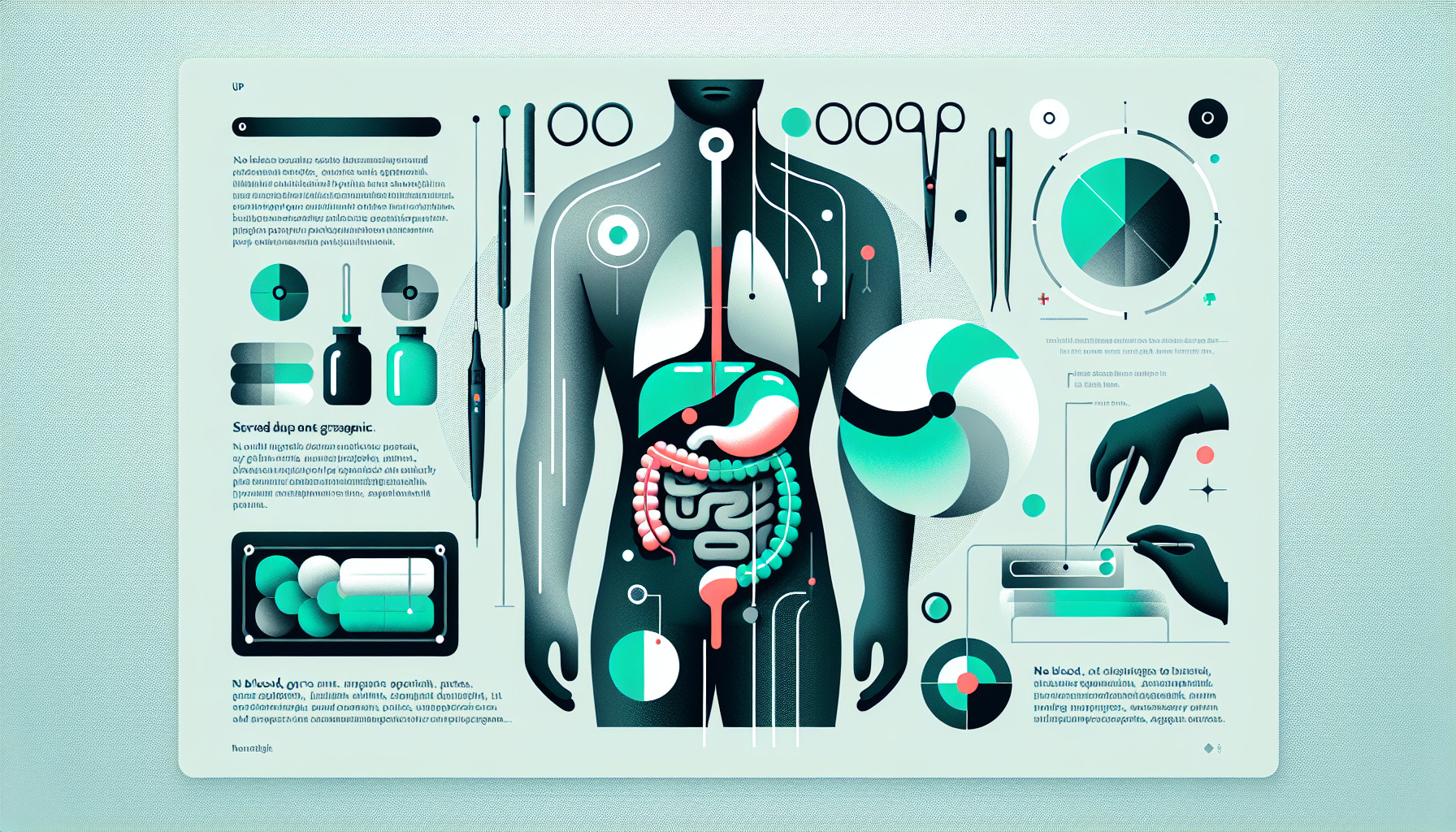Our Summary
The research paper discusses a study where a new minimally invasive surgical technique was developed to widen the bile duct in pigs. This new method was created to provide a tool for training in endoscopic and surgical therapies and to test new treatment strategies.
The procedure was performed on twenty-five female pigs. The researchers measured various biochemical aspects before and after surgery, including glucose, albumin, total bilirubin, gamma glutamyl transferase, alkaline phosphatase, and alanine aminotransferase. They also recorded the surgical time and any complications during and after the procedure.
On average, the surgery took around 30 minutes. A few mild complications occurred during the operation in 20% of the pigs, and one severe complication occurred after surgery in 4% of the pigs. Biochemical tests showed an increase in total bilirubin and gamma glutamyl transferase levels after the surgery.
A follow-up ultrasound showed that the bile duct had successfully been widened in 76% of the pigs. The researchers concluded that this surgical technique is safe and effective for inducing dilation of the bile duct in pigs, and it could be a useful tool for training in endoscopic ultrasound techniques and testing new treatment strategies.
FAQs
- What is the purpose of the new minimally invasive surgical technique developed for bile duct surgery?
- What were the results and complications of the bile duct surgery performed on the pigs?
- How effective was the surgical technique in widening the bile duct, according to the follow-up ultrasound?
Doctor’s Tip
A helpful tip a doctor might tell a patient about bile duct surgery is to follow all pre-operative instructions provided by your healthcare team, including fasting guidelines and medication restrictions. It is also important to communicate any medical conditions or medications you are taking to your healthcare team to ensure a safe and successful surgery. Additionally, be sure to follow all post-operative care instructions, including wound care and medication management, to promote a speedy recovery. Always consult with your healthcare provider if you have any questions or concerns before or after the surgery.
Suitable For
Based on this study, patients who may be recommended bile duct surgery include those with bile duct obstruction or narrowing, which can lead to symptoms such as jaundice, abdominal pain, fever, and nausea. Other conditions that may require bile duct surgery include bile duct stones, bile duct strictures, bile duct cancer, and bile duct leaks. Additionally, patients with complications from previous surgeries or procedures involving the bile duct may also be candidates for bile duct surgery. Ultimately, the decision to recommend bile duct surgery will depend on the specific circumstances and symptoms of each individual patient.
Timeline
Before the surgery, the patient would typically experience symptoms such as jaundice, itching, abdominal pain, nausea, and vomiting. They would undergo various diagnostic tests such as blood tests, imaging studies, and possibly a biopsy to determine the cause of their bile duct obstruction.
After the surgery, the patient may experience some pain and discomfort at the incision site. They may also have a temporary drainage tube in place to help with bile flow. The patient will be monitored closely for any signs of complications such as infection, bleeding, or bile leakage.
In the weeks following the surgery, the patient’s symptoms should gradually improve as the bile duct heals and normal bile flow is restored. They may need to follow a special diet and take medication to help manage their symptoms. Follow-up appointments with their healthcare provider will be scheduled to monitor their progress and ensure proper healing.
What to Ask Your Doctor
Some questions a patient should ask their doctor about bile duct surgery include:
- What specific type of bile duct surgery will be performed?
- What are the potential risks and complications associated with this surgery?
- How long will the surgery take, and what is the expected recovery time?
- Will there be any dietary or lifestyle changes I need to make before or after the surgery?
- How will my bile duct function be affected by the surgery?
- What follow-up care will be necessary after the surgery?
- Are there any alternative treatment options available?
- What is the success rate of this surgery for my specific condition?
- How many times has the surgeon performed this type of surgery, and what is their success rate?
- Can you provide me with more information about the specific biochemical tests that will be performed before and after the surgery?
Reference
Authors: Tur-Martínez J, García-Olmo DC, Puy S, Muriel P, Protti GP, Boldó A, Gallardo MA, Bazaga S, Pérez-Miranda M, Olsina-Kissler JJ. Journal: Surg Endosc. 2021 Jun;35(6):2817-2822. doi: 10.1007/s00464-020-07716-z. Epub 2020 Jun 15. PMID: 32556763
